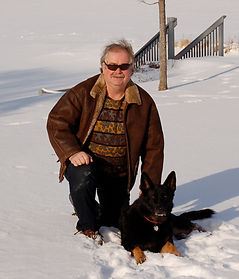
author: Kent W. Mayhew

A New Thermodynamics
This book's other homepage is:
www.New-Thermodynamics.com
Abstract: We will discuss the fact that our traditional thermodynamic perspective may be skewed and present some alternatives.
Conclusions: Thermodynamics is a mature science. Even so, one cannot simply accept its postulates without continually questioning them. We discussed how our traditional interpretations of work, joule’s experiment, the ideal gas law, as well as both the first, and second laws, may all be skewed due to our isobaric isothermal perspective.
The plausibility of work being: W=d(PV) , was clearly demonstrated. We then emphasized that work involves the movement of mass against gravity. For us located on isobaric Earth, this transforms the ideal case into: Watm=PatmdVatm, that being the work required to displace our atmosphere’s weight. We also recognized that a gaseous system’s potential to do work increases, with increasing pressure.
Indirect proof resides in the traditional treatment of latent heat of vaporization, and Joule-Thomson throttling. Two direct empirical proofs reside in this author’s paper on nucleation(7), which sadly has not been embraced. Furthermore, the blackhole paradox and the issue of work in an expanding universe, both become explainable in simple terms. It is the accepted that here on Earth, expanding systems tend to cool down, which can be explained in terms of work. The corollary is that the natural tendency of a system’s temperature is to increase, with increasing pressure. Although not fully discussed herein, both the P-T, and V-T, relationship can be correlated to the weight of the overlying atmosphere.
When systems expand, our displaced atmosphere experiences a potential energy increase, hence energy becomes irretrievably lost by the expanding system. Herein lay the foundation for a simple explanation for such energy loss, which does not necessitate the consideration of the second law. Furthermore, this improves our lucidity as to why engines have such poor efficiencies. We also realized that only 2/3 of a gas’s kinetic energy change can be used for work, which sets a baseline for most engine efficiencies. We also discussed that cyclic engines may contribute to global warming in ways not previously envisioned.
This new perspective would be equally capable of explaining the same empirical data that traditional thermodynamics does. If nothing else, we enhanced the notion that empirical data can disprove a theory, but does not necessarily prove any one theory.